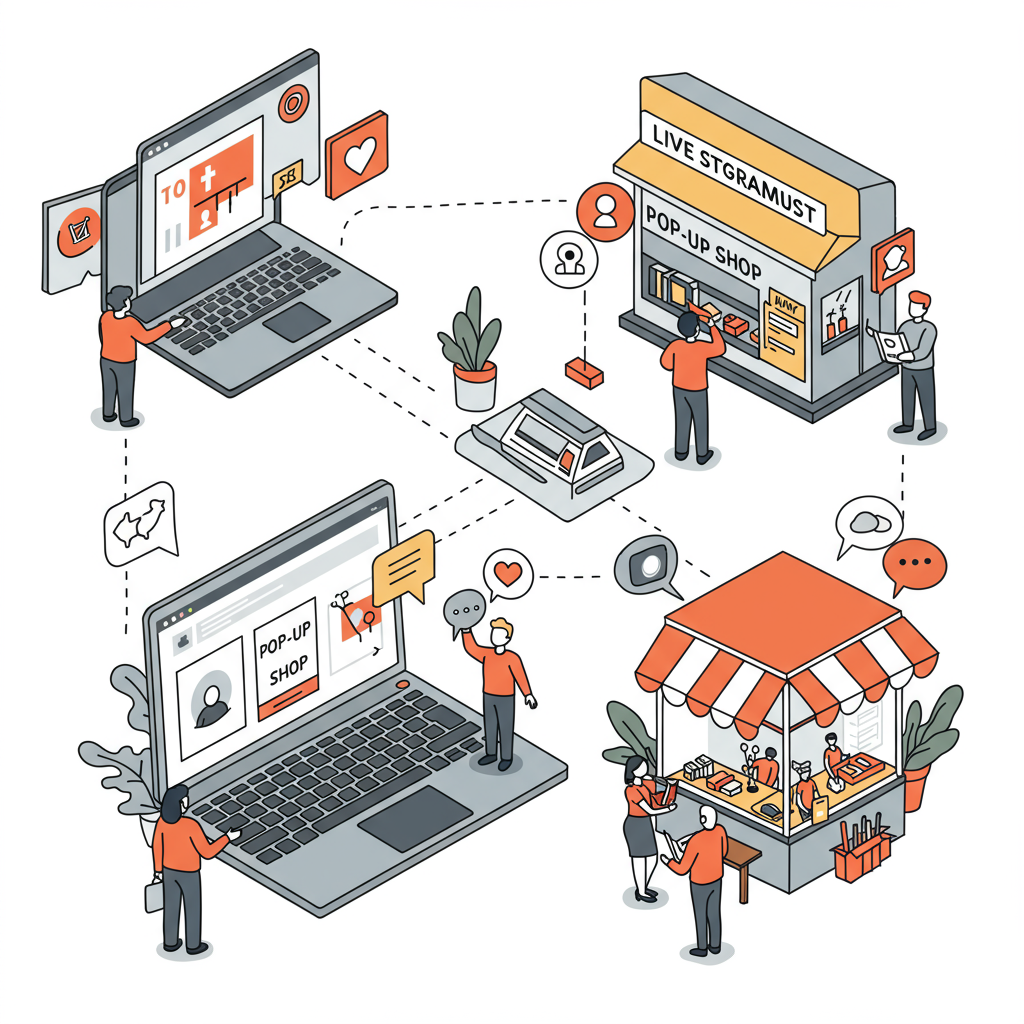Unlock new growth avenues and connect deeply with your customers through strategic event planning.
As a Shopify merchant, you’re constantly seeking innovative ways to stand out in a crowded e-commerce landscape.
One powerful, yet often underutilized, strategy is event marketing. It’s not just for big brands; it’s incredibly accessible for businesses of all sizes.
I’ve seen firsthand how events can transform customer engagement, build brand loyalty, and drive significant sales.
Event marketing allows you to move beyond transactional relationships, fostering a deeper connection with your audience.
It provides a unique opportunity to showcase your products, share your brand story, and create memorable experiences.
Let’s dive into how you can leverage event marketing to supercharge your Shopify store.
First, consider the *type* of event that best suits your brand and goals. Events can be broadly categorized into online and offline experiences.
Online events offer incredible reach and flexibility. Think webinars, live product demonstrations, or virtual workshops.
You could host a “behind-the-scenes” live stream showing your product creation process, building transparency and trust.
Virtual pop-up shops, where you offer exclusive deals for a limited time, can create urgency and excitement.
Offline events, while requiring more logistical planning, offer unparalleled personal connection.
Pop-up stores in high-traffic areas allow customers to touch, feel, and experience your products firsthand.
Hosting workshops related to your products – for example, a DIY craft session if you sell art supplies – can be highly engaging.
Collaborating with other local businesses for a joint event can expand your reach to new audiences.
Participating in trade shows or local markets is another excellent way to get your products in front of a targeted audience.
Once you’ve chosen your event type, the next crucial step is planning. Start by defining your *goals*.
Are you aiming for brand awareness, lead generation, direct sales, or perhaps gathering customer feedback?
Your goals will dictate everything from your event content to your marketing strategy.
Next, identify your *target audience*. Who are you trying to reach with this event? Tailor the experience to their interests.
Don’t forget to set a realistic *budget*. This includes venue costs, marketing expenses, staffing, and any materials needed.
Now, let’s talk about *marketing your event* – this is where your Shopify store truly shines.
Create dedicated landing pages on your Shopify store for event registration or information. Use compelling visuals and clear calls to action.
Leverage your Shopify blog to publish articles about the upcoming event, building anticipation and providing value.
Email marketing is incredibly effective. Segment your customer list and send out personalized invitations and reminders.
Promote heavily across all your social media channels. Use engaging graphics, videos, and countdown timers.
Consider running targeted paid ads on platforms like Facebook or Instagram to reach a wider, relevant audience.
Collaborating with influencers who align with your brand can amplify your event’s reach significantly.
During the event, focus on *engagement*. For online events, use live Q&A sessions, polls, and interactive elements.
If it’s a live shopping event, integrate your Shopify products directly, making it easy for viewers to purchase instantly.
For offline events, ensure your staff are knowledgeable, friendly, and ready to assist customers. Offer exclusive in-event discounts.
After the event, the work isn’t over. *Follow-up* is key to maximizing your ROI.
Send thank-you emails to all attendees, perhaps including a special post-event discount code for your Shopify store.
Repurpose event content. If you recorded a webinar, share it on your blog or YouTube channel. Create highlight reels for social media.
Gather feedback through surveys. What did attendees enjoy? What could be improved? This data is invaluable for future events.
Finally, *analyze your results*. Did you meet your goals? What was the cost per acquisition? How many sales were directly attributed to the event?
Shopify’s analytics can help you track traffic from event-specific links and monitor sales spikes.
Remember, event marketing is an iterative process. Learn from each experience and refine your approach.
By strategically planning, promoting, and executing events, you can create powerful connections that translate into lasting customer relationships and significant growth for your Shopify business.
What do you think about these event marketing ideas for Shopify merchants? I’d love to hear your thoughts!






